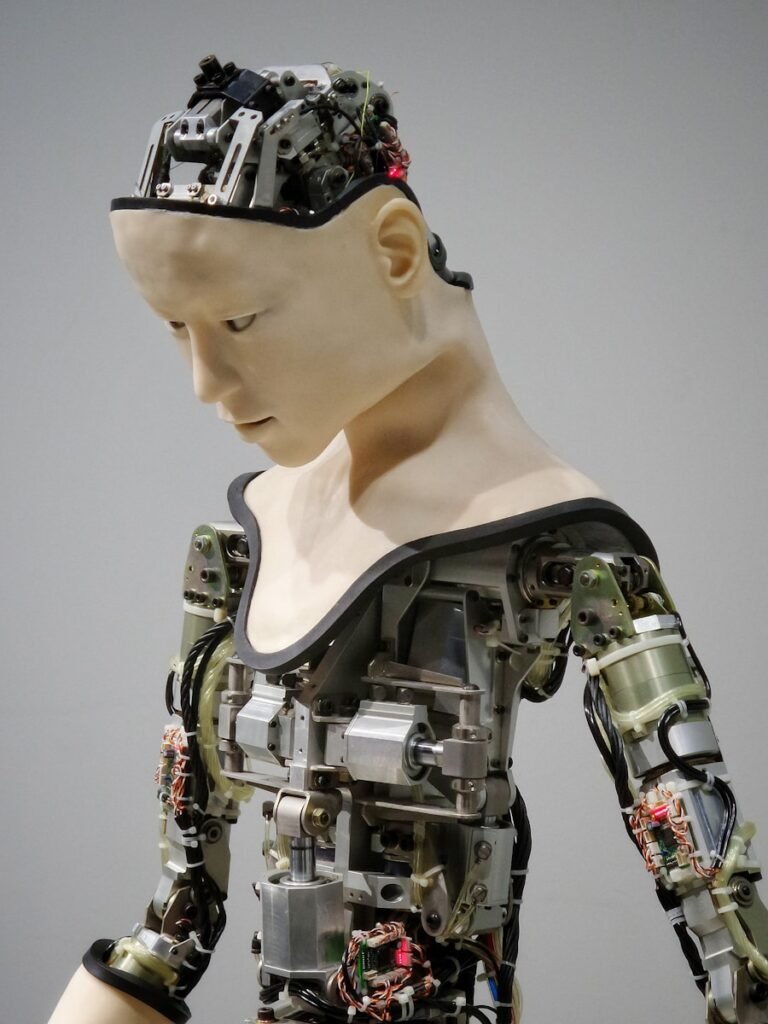
The Impact of AI on Privacy
The realm of Artificial Intelligence, or AI, has undeniably transformed our existence in ways both mysterious and profound. From the tailored suggestions on streaming services to the autonomous vehicles navigating our roads, AI has seamlessly integrated itself into the fabric of our daily routines. Yet amidst this technological marvel lies a looming shadow of uncertainty – the issue of privacy. As advancements in technology surge forward at an alarming pace, concerns regarding data security and individual privacy have surged to the forefront.
In a world where information reigns supreme, safeguarding the confidentiality of individuals within an AI-dominated environment is paramount. As Max Levchin famously remarked, “The globe is now saturated with data, allowing us to perceive consumers in unprecedented clarity.” While AI holds promise for enriching our lives in countless ways, it also prompts crucial ethical inquiries about how our personal data is gathered, stored, and utilized. In this era of digital navigation, striking a delicate equilibrium between progress and privacy becomes essential for upholding individual rights and liberties within an ever-evolving technological sphere.
Navigating the Boundary Between Innovation and Ethics
Innovation and ethics: like two sides of a coin spinning through the ever-evolving world of AI. As technology hurtles forward at an astonishing pace, the distinction between pushing boundaries and upholding ethical standards becomes increasingly hazy. It’s akin to navigating a tightrope in the midst of a raging windstorm simultaneously exhilarating, nerve-wracking, and just a tad insane.
One moment you’re astounded by the remarkable progress that AI has bestowed upon our lives. The next, you find yourself pondering the moral dilemmas that accompany it all. As visionary Elon Musk once remarked, “With artificial intelligence, we are beckoning forth the demon.” But fret not, intrepid explorers in this domain of AI! Maneuvering through the delicate balance between innovation and ethics may prove perplexing, but it’s a challenge worth confronting head-on. Let us buckle up, cling on tightly, and embrace the whirlwind journey that is shaping the future of AI.
Ethical Considerations in AI Development
Have you ever delved into the perplexing world of ethical dilemmas lurking in the shadows of AI development? It’s akin to a chaotic juggling act involving a flaming torch, a rubber chicken, and a crystal ball all at once. The fine line between progress and privacy is one of the mind-boggling quandaries that plague this domain. It feels like attempting to ride a unicycle on a tightrope exhilarating yet nerve-wracking.
Just picture if AI possessed a moral compass it would likely hit the snooze button repeatedly, wouldn’t it? But setting jokes aside, establishing ethical standards for AI developers is paramount. In the words of Elon Musk, “With artificial intelligence, we are summoning the demon.” It’s almost as absurd as trying to train a pet rock to fetch but having guidelines can steer AI in the right direction. Ultimately, prioritizing ethics in AI development isn’t merely ticking off boxes; it serves as our guiding light through the labyrinthine realm of technology.
Safeguarding Personal Data in an AI-Driven World
In a world dominated by AI, the protection of personal data has emerged as a burning issue. Our information circulates like wildfire at a high school prom, making it imperative to guarantee the safety of our digital secrets. As the famous saying gs, “With great power comes great responsibility,” and in the realm of AI, this sentiment holds more truth than ever.
Picture your personal data as priceless jewels and AI as the sly thief attempting to snatch them away. It’s an ongoing game of hide-and-seek, with your privacy hanging precariously in the balance. Just like tech pioneer Marc Benioff once remarked, “The future of privacy is within your grasp,” his words couldn’t ring truer. We must remain alert in safeguarding our data, using tools and technologies to outwit any potential digital trespassers. So next time you disclose your information online, remember to secure it tighter than Fort Knox because in the domain of AI, the stakes have never been higher.
Challenges of Balancing Progress and Privacy
Privacy and progress dance together in the intricate world of AI, a balancing act that requires finesse and agility. As we plunge deeper into the realms of artificial intelligence, the puzzle of advancing technology while safeguarding personal data grows more complex. It’s like navigating a maze blindfolded, with each step holding the potential for a privacy catastrophe!
In a realm where rules struggle to keep pace with innovation, finding harmony between pushing boundaries and respecting privacy feels akin to solving a Rubik’s Cube in the dark. As Sam Altman humorously notes, “It’s like attempting to paint Picasso wearing boxing gloves – challenging yet not insurmountable!” We find ourselves engulfed in a storm of transformative AI capabilities and an urgent call for ethical responsibility. Walking this tightrope demands a graceful performance of leveraging AI prowess while prioritizing user privacy above all else.
Ethics vs. Advancements: Striking a Balance
Navigating the intricate balance between ethical dilemmas and technological advancements in the realm of artificial intelligence is like tipting through a minefield of uncertainty. The awe-inspiring progress AI has brought to society is undeniable, transforming industries and enriching our daily lives in countless ways. However, we are also confronted with profound moral quandaries that emerge when we push the boundaries between innovation and ethical accountability. It’s a bit like juggling live grenades while walking on a tightrope thrilling yet perilous.
As we venture through this hazardous landscape, it’s essential to heed the cautionary words of Professor Stephen Hawking: “The advent of powerful AI could be either humanity’s greatest triumph or its ultimate downfall.” The stakes are undeniably high, and the decisions we make today will shape our future trajectory. A single misstep could set off a chain reaction of irreversible consequences, much like opening Pandora’s box without any plan to contain the ensuing chaos. Therefore, as we weigh the seductive allure of technological advancement against the somber backdrop of ethical considerations, let us remember Anne Wojcicki’s wise advice: “With great power comes great responsibility.” The era of AI challenges us to rise up with a blend of creativity and introspection, lest we become lost in the blinding light of progress.
The Role of AI in Data Protection
In the realm of data protection, AI emerges as a mysterious enigma, akin to a caped crusader swooping in to fend off digital villains and shield your precious information. Picture AI as a shadowy sentinel, incessantly scouring for any inklings of danger and promptly springing into action to preserve the sanctity of your data.
Thanks to the evolution of AI technology, organizations can now unleash intricate algorithms that preemptively identify and thwart potential security breaches before they materialize. It’s almost like possessing a mystical crystal orb capable of prophesying cyber assaults and halting them dead in their tracks. As Marc Goodman so eloquently put it, “You may not be able to prevent privacy infringements entirely, but you can certainly complicate matters for hackers.” This is precisely what AI accomplishes setting higher barriers for cyber malefactors and making it increasingly arduous for them to infiltrate your data fortress.
As we bear witness to the mesmerizing prowess of AI in safeguarding data, it becomes evident that this technology harbors boundless possibilities in reshaping an impregnable digital terrain. Just as Sam Altman envisages, AI has the potential to metamorphose how we fortify our personal details, furnishing an impenetrable shield amidst an ever more interconnected world.
Ethical Guidelines for AI Developers
In the perplexing world of AI development, ethical guidelines stand as a beacon of light, shaping the uncertain future of technology. As we boldly step into the enigmatic realm of artificial intelligence, developers must navigate with caution, pondering the ethical dilemmas that loom over their creations. From safeguarding data privacy to advocating for transparency in algorithmic decision-making, these guidelines serve as a burst of clarity amidst the chaotic sea of innovation.
A crucial consideration is the profound impact AI could have on society at large. As Sam Altman eloquently put it, “AI is likely to be either the best or worst thing to happen to humanity.” This enigmatic declaration forces us to contemplate the immense power wielded by AI and the weighty responsibility that accompanies it. By adhering to ethical standards, developers can aspire towards harnessing AI’s potential for good while guarding against unforeseen dangers. In this ever-shifting landscape of technology, ethics act as a moral compass guiding innovation towards an unknown horizon filled with promise and peril alike.


